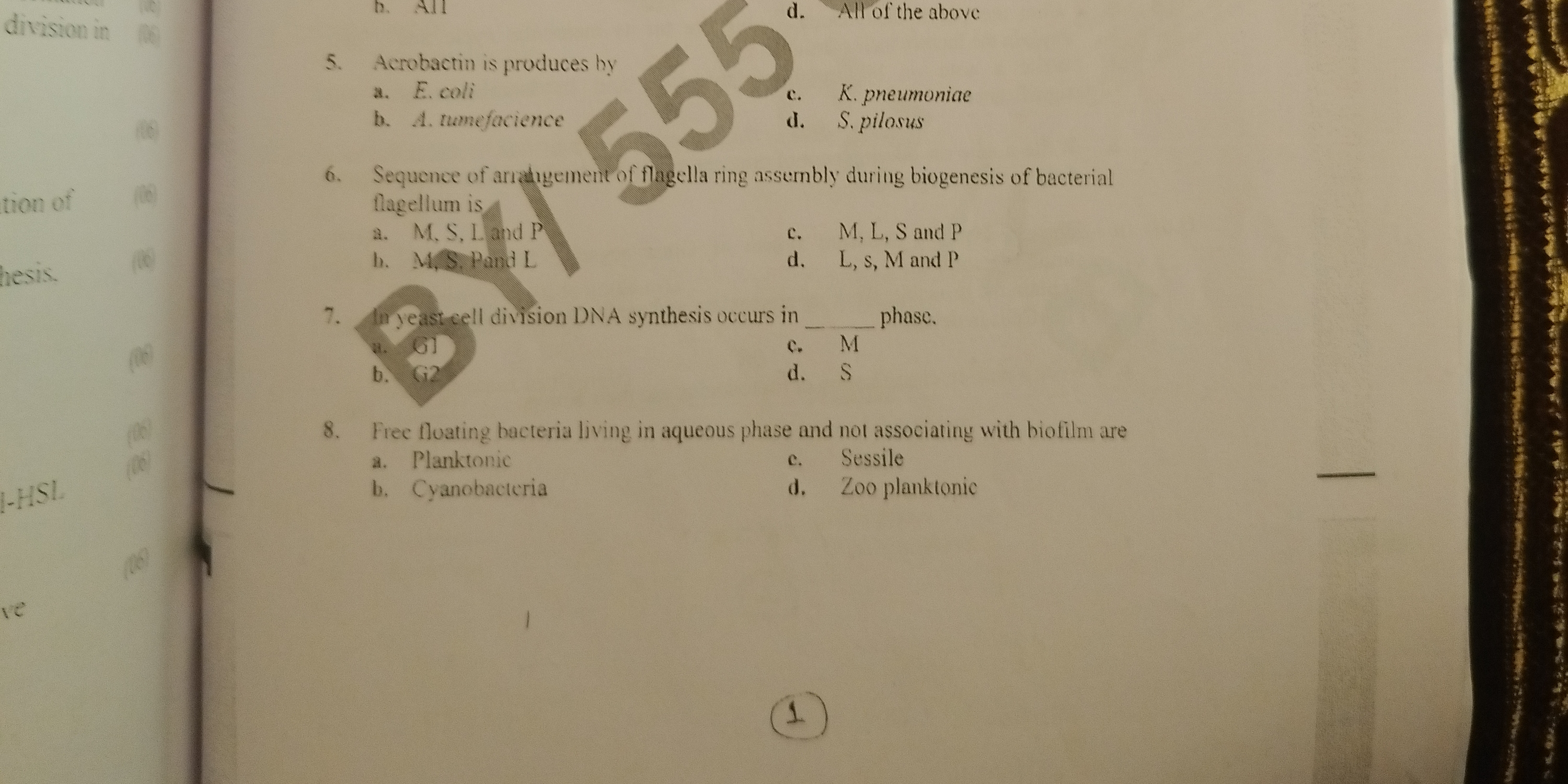1. Aerobactin is produced by: a. E. coli b. A. tumefaciens c. K. pneumoniae d. S. pilosus 2. Sequence of arrangement of flagella ring assembly during biogenesis of bacterial flagel... 1. Aerobactin is produced by: a. E. coli b. A. tumefaciens c. K. pneumoniae d. S. pilosus 2. Sequence of arrangement of flagella ring assembly during biogenesis of bacterial flagellum is: a. M, S, L and P b. M/S, P and L c. M, L, S and P d. L, S, M and P 3. In yeast cell division DNA synthesis occurs in ___ phase: a. G1 b. G2 c. M d. S 4. Free-floating bacteria living in aqueous phase and not associating with biofilm are: a. Planktonic b. Cyanobacteria c. Sessile d. Zoo planktonic

Understand the Problem
The question contains multiple-choice items related to microbiology and yeast cell division, focusing on different concepts such as the bacteria that produce aerobactin, the arrangement of flagella, phases of DNA synthesis in yeast, and types of floating bacteria.
Answer
1. E. coli 2. M/S, P, and L 3. S 4. Planktonic
The final answers are: 1. E. coli 2. M/S, P, and L 3. S 4. Planktonic
Answer for screen readers
The final answers are: 1. E. coli 2. M/S, P, and L 3. S 4. Planktonic
More Information
Aerobactin is a siderophore produced by E. coli. The sequence of flagella ring assembly is crucial for bacterial mobility. DNA synthesis in yeast occurs during the S phase. Planktonic bacteria are free-floating and not part of biofilm communities.
Tips
A common mistake is confusing the order of ring assembly; memorizing the sequence can help.
Sources
- Structural and functional delineation of aerobactin biosynthesis in ... - ncbi.nlm.nih.gov
AI-generated content may contain errors. Please verify critical information